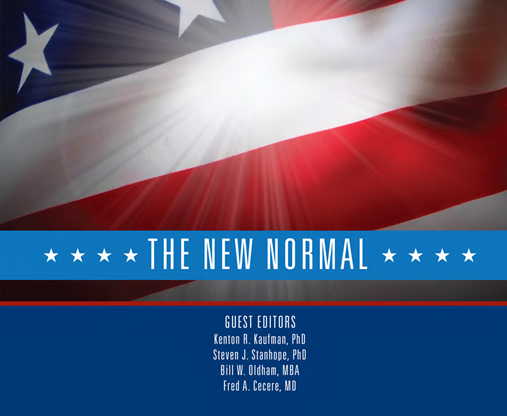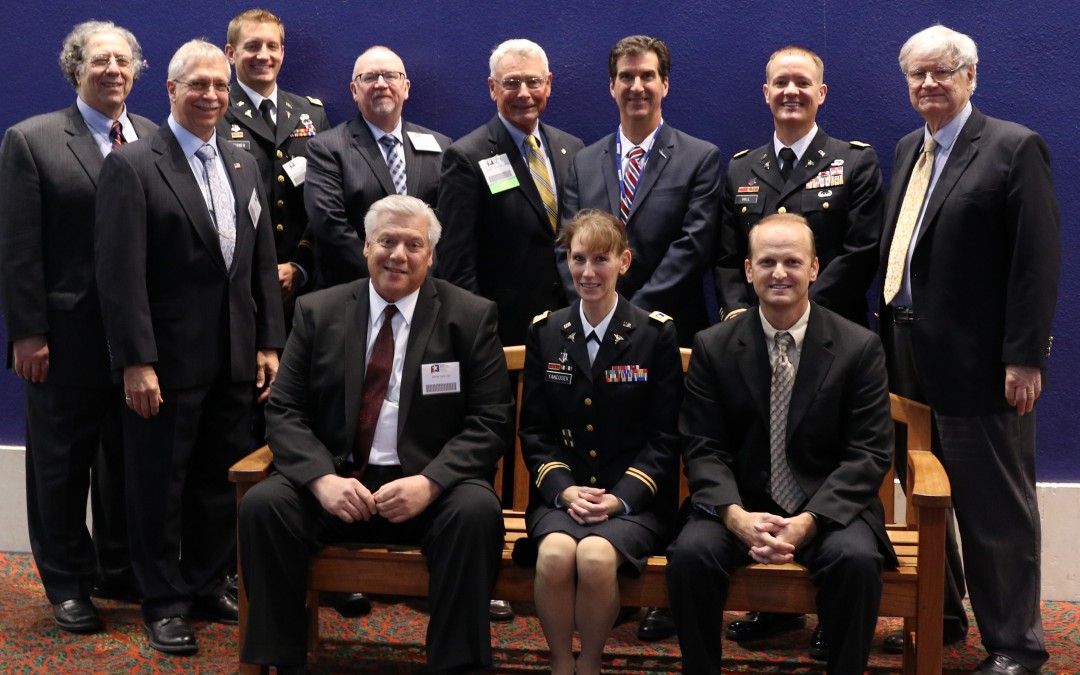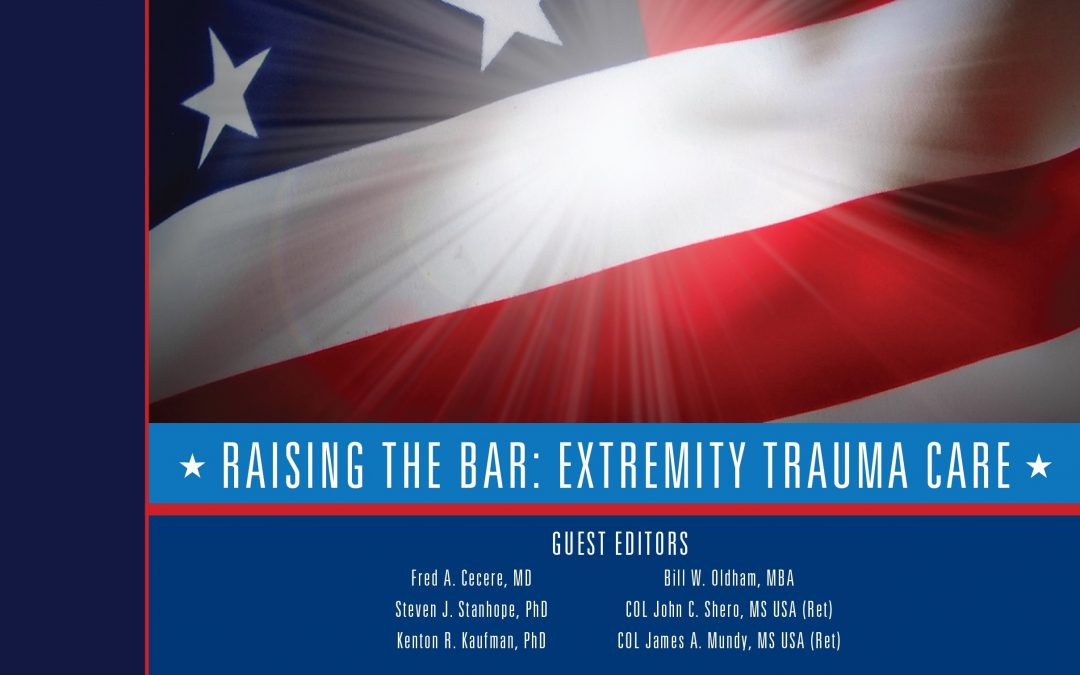
Partnership
December 2016 BADER Consortium and the Thought Leadership and Innovation Foundation recently collaborated on a special supplement to Military Medicine, the International Journal of AMSUS. The focus is the “New Normal” of military care – namely, how the military and civilian sectors are flexing to care for servicemembers with orthopedic combat injuries. During the five operations in Iraq and Afghanistan since 2001, more than 1,640 members of the U.S. Armed Forces have suffered a traumatic injury requiring a limb amputation. These men and women require high-level, multidisciplinary care that addresses their needs in the short and long term while also helping them reach their highest level of function possible. Addressing these varied needs of injured service members requires the development of strategic infrastructures that integrate patient care and clinical research. This is the work of the BADER Consortium. The Military Medicine supplement talks about the challenges and successes in fostering this “New Normal” approach. It includes insights gleaned from a recent gathering during the AMSUS Annual Continuing Education Meeting in San Antonio, Texas. “WARfighters Receiving Innovative Orthopedic Rehabilitation (WARRIOR) Symposium: Research and Treatment of Patients with Extremity Trauma and Amputation” discussed how state-of-the-art programs are using research to impact the care of people with limb loss. This event was a first in bringing together military, civilian and industry representatives to talk about ways to partner in the future. John Shero, director of the Department of Defense/Veterans Affairs Extremity Trauma and Amputee Center of Excellence, or EACE, called the gathering “a brain trust” of people he had never before seen together. For the BADER Consortium and others invested in orthopedic rehabilitation research,...

Partnership
November 2015 Members of the BADER Consortium are in San Antonio, Texas for the 2015 AMSUS Continuing Education meeting, where federal and military health professionals are discussing how healthcare is flexing to meet the changing needs of its patients. The conference features top leadership from the Department of Defense, Department of Veterans Affairs, Defense Health Agency and others talking about health and scientific issues under the theme, “The New Normal.” AMSUS is a non-profit organization for federal and international health professionals that helps advance healthcare knowledge and effectiveness among its members. It includes the uniformed services along with the Department of Veterans Affairs. Dr. David Shulkin, Under Secretary of Health for the VA, will provide an update on the current and future state of the VA and also describe his vision for veterans’ healthcare. Medical and clinical operations, global health, and military health system updates are among the educational tracks. In addition, BADER Consortium is co-sponsoring the WARRIOR Symposium. The symposium will discuss rehabilitation needs for servicemembers and civilians following amputations or extremity trauma. WARRIOR stands for WARfighters Receiving Innovative Orthopedic Rehabilitation. The symposium is intended to offer a comprehensive look at the issue of orthopedic rehabilitation, from a military and civilian perspective. It will include a discussion of the findings of the Defense Health Board report issued earlier this year, which made recommendations for the sustainment and advancement of amputee care. Participants in the WARRIOR Symposium include Vice Admiral Raquel Bono, MD, director of the Defense Health Agency, discussing the “Roadmap for Change;” Maj. Gen. George Anderson, MD, talking about the Defense Health Board report; and Maj. Daniel...

Partnership
December 2016 For the second time this year, the BADER Consortium has collaborated with other military health organizations to produce a special supplement to Military Medicine, the International Journal of AMSUS. “Raising the Bar: Extremity Trauma Care,” was produced in partnership with the Thought Leadership & Innovation Foundation (TLIF), the Extremity Trauma and Amputation Center of Excellence (EACE) and the Center for Rehabilitation Sciences Research (CRSR). It focuses on the collaboration and innovation that is taking place in today’s military health system. Today’s wounded soldiers have access to cutting-edge medical care, technology and research efforts in the seconds following their injury, making it possible to reach optimal outcomes for this high-performing group. This kind of success is the result in part of a synergistic approach taken by BADER, the EACE and CRSR to identify and develop research capabilities that translate advances into clinical care. The 80-page supplement highlights the many examples of how military health professionals are “raising the bar” when it comes to finding ways to work together to address the complex needs of combat wounded soldiers. The issue includes an article about the BADER Consortium and how it relies on strong partnerships with military treatment facilities (MTFs) to strengthen and support orthopaedic rehabilitation research. You also can read about some of the latest research taking place at these MTFs. The BADER Consortium is proud to be part of the effort to help wounded service members return to their highest level of function following a traumatic limb injury. This supplement provides a snapshot of the ways our University of Delaware staff, funded through BADER, are making a...




